Filter by
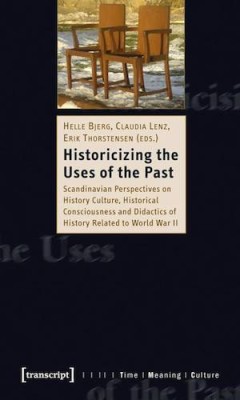
Historicizing the Uses of the Past : Scandinavian Perspectives on History Cul…
This book presents new developments in Scandinavian memory cultures related to World War II and the Holocaust by combining this focus with the perspective of history didactics. The theoretical framework of historical consciousness offers an approach linking individual and collective uses and re-uses of the past to the question how history can and should be taught. It also offers some examples o…
- Edition
- -
- ISBN/ISSN
- 9783837613254
- Collation
- -
- Series Title
- -
- Call Number
- 948 HIS
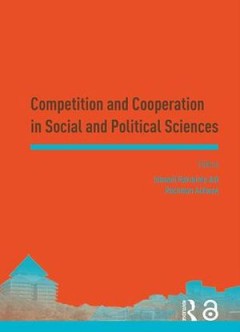
Competition and Cooperation in Social and Political Sciences: Proceedings of …
The book contains essays on current issues in Social and Political Sciences, such as the issues of governance and social order; social development and community development; global challenges and inequality; civil society and social movement; IT-based community and social transformation; poverty alleviation and corporate social responsibility; and gender issues. Asia and the Pacifi c are the pa…
- Edition
- -
- ISBN/ISSN
- 9781315213620
- Collation
- -
- Series Title
- -
- Call Number
- 959 COM c
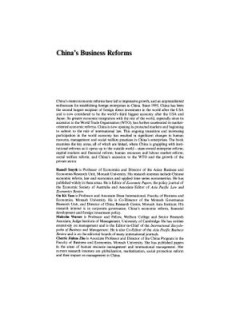
China's Business Reforms
China's recent economic reforms have led to impressive growth, and an unprecedented enthusiasm for establishing foreign enterprises in China. Since 1993, China has been the second largest recipient of foreign direct investment in the world and is now considered to be the world's third biggest economy. Its greater economic integration with the rest of the world, especially since its accession to…
- Edition
- -
- ISBN/ISSN
- 9780203537039
- Collation
- -
- Series Title
- -
- Call Number
- 337.51 CHI c
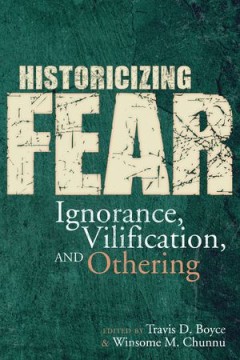
Historicizing Fear : Ignorance, Vilification, and Othering
Historicizing Fear is a historical interrogation of the use of fear as a tool to vilify and persecute groups and individuals from a global perspective, offering an unflinching look at racism, fearful framing, oppression, and marginalization across human history. The book examines fear and Othering from a historical context, providing a better understanding of how power and oppression are used i…
- Edition
- -
- ISBN/ISSN
- 9781646420025
- Collation
- -
- Series Title
- -
- Call Number
- 305.8 HIS
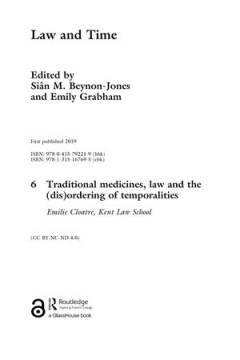
6 Traditional medicines, law and the (dis)ordering of temporalities
In this chapter, I explore the regulation of alternative and traditional medicine, in order to reflect on how particular temporalities shape, and are shaped by, the interface between law and medicine. This chapter makes two key points: first, it argues that both biomedicine and law have relied on a particular sense of ‘modernity’ as a linear temporal process; in turn, this has been key in d…
- Edition
- -
- ISBN/ISSN
- 9780415792219
- Collation
- -
- Series Title
- -
- Call Number
- 615.321 CLO s
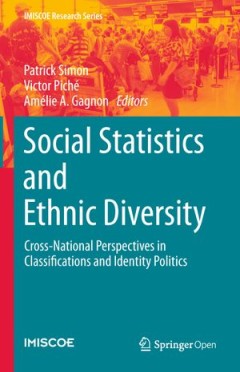
Social Statistics and Ethnic Diversity: Cross-National Perspectives in Classi…
Migration; Population Economics; Sociology, general; Political Science; Human Geography
- Edition
- -
- ISBN/ISSN
- 9783319200941
- Collation
- -
- Series Title
- -
- Call Number
- 360 PIC s

Rethinking Interdisciplinarity across the Social Sciences and Neurosciences
This book offers a provocative account of interdisciplinary research across the neurosciences, social sciences and humanities. Setting itself against standard accounts of interdisciplinary 'integration,' and rooting itself in the authors' own experiences, the book establishes a radical agenda for collaboration across these disciplines. Rethinking Interdisciplinarity does not merely advocate int…
- Edition
- -
- ISBN/ISSN
- 9781137407955
- Collation
- -
- Series Title
- -
- Call Number
- 306.4 CAL r
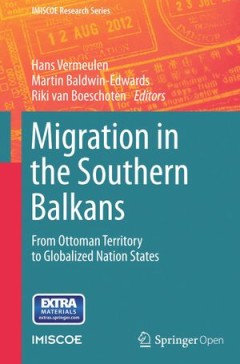
Migration in The Southern Balkans: From Ottoman Territory To Globalized Natio…
Migration; History, general; Cities, Countries, Regions; Demography
- Edition
- -
- ISBN/ISSN
- 9783319137186
- Collation
- -
- Series Title
- -
- Call Number
- 351.81 BOE m

Inter-Group Relations and Migrant integration in European Cities: Changing Ne…
Migration; Urban Geography / Urbanism (inc. megacities, cities, towns); Political Science
- Edition
- -
- ISBN/ISSN
- 9783319450193
- Collation
- -
- Series Title
- -
- Call Number
- 305 PON i

Integration Processes and Policies in Europe: Contexts, Levels and Actors
Migration; Statistics for Social Science, Behavorial Science, Education, Public Policy, and Law
- Edition
- -
- ISBN/ISSN
- 9783319216737
- Collation
- -
- Series Title
- -
- Call Number
- 305 PEN i
 Computer Science, Information & General Works
Computer Science, Information & General Works  Philosophy & Psychology
Philosophy & Psychology  Religion
Religion  Social Sciences
Social Sciences  Language
Language  Pure Science
Pure Science  Applied Sciences
Applied Sciences  Art & Recreation
Art & Recreation  Literature
Literature  History & Geography
History & Geography